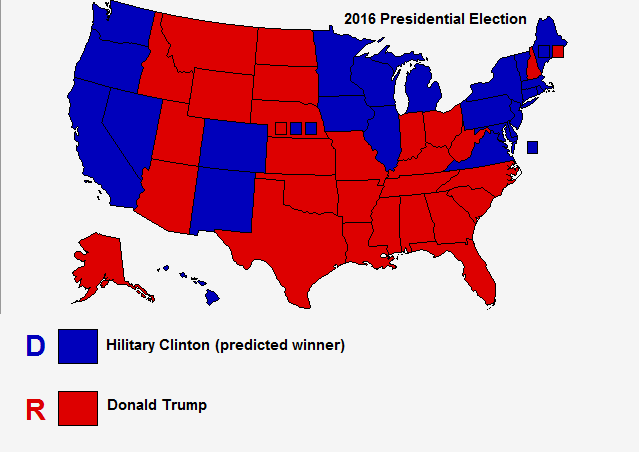HOME | DD
 Goliath-Maps — Yeezusland
Goliath-Maps — Yeezusland

Published: 2018-03-13 02:39:48 +0000 UTC; Views: 5133; Favourites: 29; Downloads: 0
Redirect to original
Description
Another plausible then wacky American electoral history, though not wholly unlike our own in that regard. Rather darker than some of my other work. This may be a bit controversial.The point of divergence from our timeline is the passing of the 1986 Immigrant Reform and Control Act (en.wikipedia.org/wiki/Immigrat… ) in its much stricter 1982 version. In our timeline, thanks to an unusual and apparently temporary alliance between Hispanic advocacy groups and Big Agrocultural conglomerates in their congressional lobbying, the act was defeated twice (in '82 and then '83) before being rewritten to be less restrictive to immigration.
In this world, while immigration continued to be a highly politicized issue, the act failed to significantly alter the makeup of immigration in the United States. If anything, attention brought to the issue by the act, and the subsequent replacement with new immigration policies in 2006 during the Gore administration, would slightly soften some of ICE's harsher edges. The much larger consequence would be the gradual cementing of the alliance between big business and minorities advocacy groups during the '90s. Proposition 187 was butterflied out of existence, but plenty of rural 'redneck' states passed similar anti-immigration measures in the late '90s. Other butterflies in the decade include the screening of an alternate version of the Phantom Menace where Jar Jar Binks is revealed to be a Sith Lord, and the failure of a certain would-be hip hop artist to leave his English degree at Chicago state behind.
The first truly momentous change is the election of Al Gore as President of the United States in 2000. 9/11 occurs on schedule however, and the Gore administration and the Republican opposition dutifuly sign a less-sinisterly-named PATRIOT act and invade Afghanistan. Despite this (or perhaps because of no Iraq war) the Gore administration gets some legistlation passed including single payer healthcare, federal Gay civil-unions, and education standardized very similar to No-child-left-behind. Most significantly, an international deal similar to the Paris Agreement is signed in 2009 by President Gore's successor, Mitt Romney.
Ushered in on the winds of unrest stemming from the 2007 financial meltdown, Mitt Romney returned the Republican party to power after 16 years out of office. Rather than the Mitt of our world, who felt pressured to hide his moderation and willingness to take ideas from across the aisle, the Mitt of this world is very much convinced that it is his moderation which allowed him to become President. Mitt here tacitly refuses to condemn the spread of Gay marriage on a state by state basis, reduces the military buildup which occurred during the Gore Era invasion of Afghanistan, and continues the Democrat's Single Payer system. Mitt is still a Pro-business president, and at times it feels like that's just about all he stands for. In the name of American competition and the free market he takes minor steps to open America's borders, and begins actively encouraging Latin American labor to enter the United States on temporary corporate deals. If you thought our world's Trans-Pacific Partnership was a big deal, you should see the international free-trade zone which President Romeny makes a cornerstone of his agenda.
2014 the Arab Spring begins. In this universe it begins as a Palace power struggle in Baghdad, following the death of Saddam Hussein, which spills into violence (Democratic vs. Authoritarian, Islamist vs. Secular, Nationalist vs. Pan-Arabist) across the same countries of our world's Arab spring pluse Saudi Arabia. With a repeat to the 1973 Oil Crisis looming, President Romney responds with region-wide bombing campaigns (theoretically in conjuction with the EU/Turkey/Russia/Israel, and de facto with Iran as well) meant to support Democratic forces.
Though President Romeny leaves the White House feeling acomplished, all of this comes with a backlash. Mitt's mild-mannered and perhaps more moderate Secratary of State Jon Huntsman claims the Republican nomination with Mitt's early blessing, which is the straw that breaks the camel's back for many of what in our world would be the Republican base. Rustbelt states, rural whites (particularly those with less than evangelical leanings) begin searching for an alternative. Enter Iowa Senator Steve King. Steve King is many ways the Trump of this universe, though perhaps a Trump whose time has not yet come. He rambles incoherently at times, with dogwhistles in between, advocates a fundamentally protectionist, almost mercantilist economy, advocates for full withdrawl of the American forces abroad, and brings Bannon and Jeff Sessions on board with a new political party. Concessions to Unions, and a focus on "taking down Anti-American Big Business" actually convinces a number of Democrats (particularly in Rust-Belt states) to join this party. Steve King is no Trump though- he is ideologically consisent and not at all twitter-savvy. Although no more involved with White Supremacists than Trump in our world, King's inability to simply overide the truth a la Trump leaves him considerably behind, and isolated in American politics.
Nevertheless, King's short-lived party stuns America and comes second in the electoral vote. The quickly sealed agreement between Democrats and Republicans to hand power over to the Democrat Candidate, New York Governor Andrew Cuomo, only solidifies in many would-be Republican voters' minds the image of the Republican Party willing to sell out its base for a quick deal. Post election Steve King, though seen by many commentators as a surprise victor, collapses into more overly racist drabble and leaves the public life.
Cuomo's administration sees the world sink into a general mood of illiberalism. First, the British in 2017 leave the European Union. Next, the 'Grand Coalition' in the Middle East breaks down, with Russia (and Putin at the helm) clearly acting against the U.S.- but Israel and Turkey questionably doing so as well (Iran meanwhile, sans Bush's "Axis of Evil" speech has moved into an alliance with the U.S.). China (right on schedule) leaves behind term limits, and the populists in India and Japan are different, rather further to the right than in our world. Admist this, Cuomo portrays himself as a beacon of liberalism, and increasingly dabbles in identity politics as well. Though long slowly spreading throughout the United States, Cuomo rams through a federal approval of Gay Marriage. He endorses Black-advocacy movements (although there was no Ferguson here, there was also no first Black President, and though they remained beneath the surface to most of (White) America this whole time, "race relations" became full of even more pent up resentment here). Unfortunately, much of this seemed to come from a politician desperate not only to defend himself but the entire bipartisan political establishment.
Enter Mayor of Chicago, Kanye West. Many politicians sot to fill the gap left by King's apparent post-2016 descent into madness. America was clearly still ripe for a Populist Third Party merging Left and Right. Several of the would-be contenders were White Nationalists- even the Homeland Party's original founders included at least one. But Kanye West, at least to critics, could provide a Black face to a backwards-looking party. West proved to be no mere figurehead however, and radically made the party his own. West spoke frankly, and to many Americans apparently honestly, about the state of Black communities in the United States. He called for Black men to "Be better fathers, remember where you came from, work harder than those who doubt you, and make your enemies bow to you" which plenty of White Middle-Americans interpreted as wholly in line with their beliefs on the American dream. Even West's undertone emphasis on reclaiming strength and masculinaty for a culture deprived of both, as well as self-reliance resonated with rural white Americans as much as black Americans. At times, his tweets (and unlike King, West could use Twitter) would call the whole system rigged- promising to end affirmative action, "the media," and even hinting at plans for the demise of the free market.
Kanye West is no Donald Trump however. He became more policy-oriented here, if only slightly. Unlike Trump, his cult of personality was not based on past successes but on successes to come. While Trump laughed about "keeping the nation in suspense" over whether he would accept unfavorable election results, allies of West actually organized semi-political para-military squads. At the time of the election, West was involved in multiple lawsuits not over shady business dealings but over violence allegedly caused by his supporters (policy wise, West was strongly pro-Gun, arguing that firearms could have prevented slavery and forced removal of Native Americans in the U.S.). Whereas the Trump of our world pretended to ignore an endorsement from (White Supremacist) David Duke, the Kanye West of this world unabashedly bragged about his support from (Black Supremacist) Louis Farrakhan- and then proceeded to explain to his majority white base why that was a good thing (solid doses of anti-immigrant hysteria and speeches about anti-American terrorism helped there). Whereas Trump overcame the lack of endorsement for established political elites, West never really allowed detractors to rejoin his camp.
[Kanye is of course a bit different personality-wise here. Finishing his English degree and working as a Journalist and Op-Ed writer for two decades, then a surprise Mayor of Chicago has made him a different person. In some sense he's more bitter, but also more street smart, though no less full of himself. His wife of course, is not Kim Kardashian. ]
By the fall of 2020 Washington insiders were terrified. Leaders of both established parties saw prevention of a West Administration as an issue of national security, and as election-time drew nearer they created a compromise platform emphasizing "dignity and respect for the democratic process for all, adherence to traditional American values" etc. This was an attempt to emulate the European practice of mainstream parties joining forces to keep undesirable extremists out of power (Europeans too, after Kanye's consistent calls to "make NATO pay or we leave" were terrified). But it backfired spectacularly- Kanye West's tweets on the "new slave-holding Washington elite" caught much of the nation by storm. Republican elites' agreeance to merely running a Vice President (and Charlie Baker, another Massachusetts moderate, no less!) on a combined ticket angered what bits of their base remained amongst many Heartland conservatives. A mass shooting of a Black Church in South Carolina provided the perfect oppurtunity for Kanye West to fully stress his American, Christian, and Black identity, and to fully unite Black and White Conservatism (while strangely also emphasising the distinctness of the two 'cultures'). President Cuomo's call for greater gun regulation, while supported by meaning, seemed ton deaf and late by comparison.
Even despite all of this, few would have expected Kanye West to obtain an outright victory in the popular vote. Inauguration Day came with Kanye West being the first U.S. President to sing the National Anthem (and boy, who knew he could sing like that?) With long-term unity of the Democrats and Republicans, and the solidification of the Homeland Party's dominance of Southern and Great Plains' politics the 6th American Party System gave way to the beginning of the 7th American Party System.
Related content
Comments: 7

It amazes me how realistic one can make these alternative worlds seem.
Nice work
👍: 0 ⏩: 0

Black and White Conservatism are already allied within the Republican party and have been since the 90's, same with Black and White moderates and the Democrats. How exactly does Kanye compromise his White conservative base with his use of language more suited to the radical left and Black identity politics?
👍: 0 ⏩: 1

Well, I guess I'm referring to a Conservatism that is explicitly Black. Sure, you have plenty of Black Republicans in world (Presidential candidates like Cain and Carson, and a Conservative Black Supreme Court Judge Clarence Thomas) but all of them more or less reject identity politics in favor a non-exclusive outlook. As some of them would say themselves, they are Republicans who happen to be Black.
What Kanye is able to accomplish here is the solidification of a Black Nationalist Conservatism (along the lines of a very watered-down pre-reform Malcolm X) in alliance with White Nationalist Conservatism. At the same time, this is very much a view of 'Black empowerment through capitalism' (rejecting W.E.B. Dubois in favor of Booker T. Washington).
I think there's actually quite a lot more room on the American right for Black Americans. There are quite a lot of Ultra-conservative Black people in our world's United States who only vote with the Democrats over (real/perceived) racism within the Republican party. Many Black Southerners are almost indistinguishable from White Southerners on views such as abortion and guns. If, in this universe, Kanye West repeats oft-said conservative talking points like "Black people stand the most to lose from unchecked migration," or "All people need the right to bear arms to be free, just ask the descendants of slaves," then I think those talking points would sound to many more believable - as opposed to our world where they tend to be associated with people who otherwise make no effort to stress their connections with Black Americans. When a billionaire on Fox News tells Black people to 'pull themselves up to their boot straps' it sounds canned and corny; when the first Black presidential candidate says it it sounds like an inspiring call to action (though many White people hear it the same either way).
👍: 0 ⏩: 1

Now that would actually be interesting, mostly what I've seen is that Black identity movements have mostly been with us on the Far Left. MLK, the Panthers, going through to association with BLM and wider protest movements, and some of the stuff Kanye's saying has been said by guys on the Left before- Huey Newton and Fred Hampton would have agreed with what he said about holding guns to protect themselves, but they'd also point out stuff like the 13th amendment and political policing and even his hometown as evidence that Black men can't make it through Capitalism cause the systems built against them and all that jazz. So does that mean in this scenario there'll be a more prominent ideological divide among Black Americans then would be commonly portrayed currently?
👍: 0 ⏩: 1

Hmm, interesting points. Kanye's interested in pointing out that the system is built against them (some of his supporters believe that already, others he'd just anger by saying that)- what he is interested in saying is that he'll make the system work. for. you.
Sure, some people in this universe will see this universe's President West as turning Black Nationalism into a Right-leaning ideology, but just like our world's Trump he more or less fails to consistently articulate a single worldview in favor of cycling through a lot of platitudes and truisms. Ultimately (following his presidency) however I think there very much will be an ideological divide among Black Americans that currently does not exist.
The long fear of the American South's political class (that poor whites and poor blacks would unite) has come true in this world, only rather than coming together over a progressive or socialist platform they've united over a pseudo-philosophical strong-man with a cult of personality.
👍: 0 ⏩: 0

Dang. When I started making maps I felt like mine were always so much less dystopian than some people's. Guess I gotta lighten up.
👍: 0 ⏩: 0

























